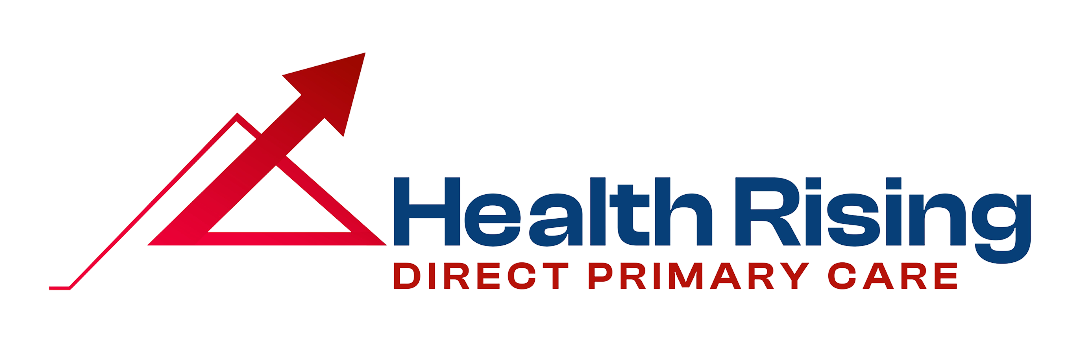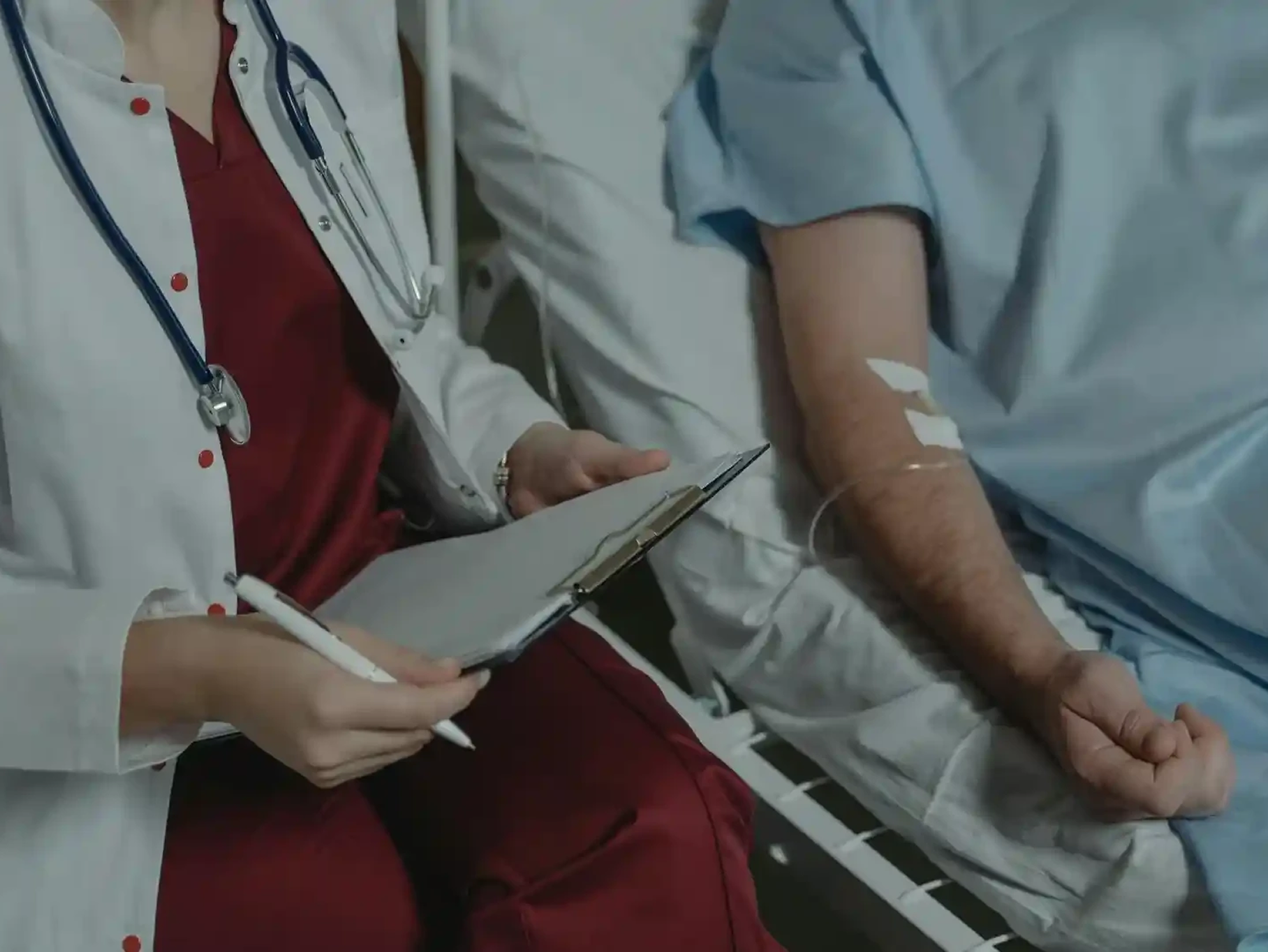For most of us, the doctor’s office has always felt like the center of health. We’re taught to trust the white coat, accept the prescription, and follow the instructions. While medical expertise is incredibly valuable, this mindset can create an unhealthy imbalance.
At Health Rising DPC, we believe in changing that dynamic. Doctors aren’t gods. Your health isn’t something to hand over, hoping for a fix. Real, lasting wellness begins when you take ownership of your health. That journey starts with a trusted doctor walking beside you instead of in front of you.
Letting Go of the All-Knowing Doctor Myth
Our culture often portrays doctors as figures with all the answers. From early childhood to adulthood, we’re conditioned to believe that the doctor always knows best. But this belief, while comforting, can also be limiting.
Even the most experienced doctor cannot feel what you feel, day in and day out. They do not live inside your body. They don’t always see how your symptoms are influenced by your routines, stress levels, or sleep habits. That’s why the idea that a doctor can fix everything without your input leads to frustration, missed diagnoses, and repeated visits that don’t offer clarity.
Doctors are experts, but they are not infallible. In traditional systems that reward speed over context, even the best doctor may be forced to make quick decisions with limited information. When you’re treated like a case file instead of a person, care becomes reactive instead of preventative.
At Health Rising DPC, we prioritize a different approach. Our focus is on your insight, your voice, and your lived experience. You are not just a patient. You are a partner in your own care.
Why Taking Responsibility for Your Health Matters Most

A single doctor’s visit cannot replace what you do consistently at home. Your meals, your sleep schedule, how you move, how you handle stress: these daily decisions carry more weight than any single diagnosis or prescription.
A physician can recommend a more anti-inflammatory diet, but only you can decide what ends up in your grocery cart. They can suggest walking or resistance training, but only you can fit it into your schedule. They might highlight the importance of better sleep hygiene, but only you can shut off the screen at night.
Taking responsibility for your health is not about blame or pressure. It is about recognizing your power and learning to use it in practical ways. For instance, adopting small changes like meal planning or movement routines can be more effective than chasing the next quick solution. That’s why we emphasize why quick fixes fail and small wins matter.
When you begin to see your health as something you shape, rather than something that happens to you, you stop relying on outside interventions and start building long-term change.
How the Insurance Model Disempowers Patients
Many people feel rushed, unheard, or confused after a doctor’s appointment. That’s not a reflection of their worth. It’s a reflection of a system that wasn’t built for depth, prevention, or partnership.
In the insurance-based model, healthcare becomes transactional. Appointments are short. Follow-ups are delayed. Preventative care is often limited to what fits within billing codes. Even when you want to ask more questions or understand the “why” behind a recommendation, the system simply doesn’t allow the time.
This creates a cycle of dependency. You’re encouraged to show up when something breaks, but you’re rarely supported in keeping things from breaking in the first place.
Direct Primary Care changes this dynamic entirely. Because we aren’t bound by insurance restrictions, we can spend the time needed to understand you. We can go deeper into your stressors, habits, and goals. We can educate you about your options and help you make choices that support real change. This is the kind of personalized approach that makes prevention a core part of every visit. It’s never treated as a once-a-year checklist. For more on that, see our guide to preventative health screenings.
How the Doctor-Patient Relationship Builds Health Empowerment

When you view your doctor as a partner rather than a savior, everything changes. Instead of waiting to be told what to do, you begin to ask questions, seek understanding, and co-create solutions.
At Health Rising DPC, our goal is to support this shift. We take the time to build relationships, listen closely, and respond to the full picture of your life, not just your symptoms.
This approach fosters confidence. You start to trust yourself more. You begin to see your doctor as a guide who helps you stay aligned with your goals. The relationship becomes a space where honesty is encouraged and there’s room for setbacks, problem-solving, and shared wins.
A good doctor doesn’t simply tell you what to do. A good doctor helps you understand your options so you can make thoughtful, informed decisions.
Why Direct Primary Care Encourages Health Ownership
Direct Primary Care creates the structure for empowered health decisions. Longer visits, direct communication, and a focus on lifestyle medicine allow patients to take a more active role in their care.
In our model, you don’t just get a diagnosis. You get the context behind it. You learn how stress affects your blood pressure. You understand the connection between gut health and your immune system. You have the space to ask questions, share your own observations, and make informed choices about your care plan.
Because we are accessible between visits, you don’t have to wait until your next appointment to get support. You can reach out with questions, get feedback, and keep moving forward.
This is especially valuable when you’re navigating complex issues like chronic stress, which can affect every system in your body. Early conversations, ongoing support, and consistent access help you feel grounded instead of overwhelmed.
When Medical Care Is Needed and When It Isn’t
One of the most important things we help patients learn is how to recognize when medical care is necessary and when it may not be.
In traditional systems, there’s often a tendency to over-treat or over-refer. Every symptom becomes a reason for testing or a referral. But more testing doesn’t always mean better outcomes. In some cases, it leads to worry, unnecessary treatment, or attention to things that don’t need intervention.
At Health Rising DPC, we take time to clarify what symptoms are concerning and which are part of normal variation. We help patients identify patterns, assess risk, and decide how to respond in a way that fits their specific needs. For example, understanding when to seek help for a viral infection versus when to monitor symptoms at home can prevent unnecessary costs and stress. We cover this in more detail in our article on infections and when to seek care.
This kind of clarity helps you feel more in control. You trust your body’s signals instead of fearing them, and you use care more strategically when it is truly needed.
How to Build a Life That Requires Less Medical Care

The goal of healthcare should be to support a life where you need fewer visits, not more. That doesn’t mean you’re on your own. It means your everyday habits and mindset help prevent many problems from starting in the first place.
At Health Rising DPC, we love seeing our patients reach that kind of independence. It shows up in small but powerful ways, like the parent who lowers their blood sugar through food changes, the retiree who reduces joint pain by walking daily, or the teacher who handles anxiety through consistent social connection and better sleep.
These stories happen when patients are given the time, tools, and trust to create routines that work. Our role is not to become the center of your health. Our role is to help you build a life where you feel strong, capable, and supported, even outside the clinic walls.
Conclusion: Doctors Aren’t Gods, and That Should Empower You
You are the constant in your health journey. Not your doctor. Not your medication. Not your lab results. You.
When you recognize that truth, everything starts to shift. At Health Rising DPC, we do not want you to hand over your health and hope for the best. We want to help you understand it, shape it, and sustain it.
Doctors aren’t gods. And that should be encouraging. Because the moment you stop waiting for someone else to take charge, you discover how much power you’ve had all along.
Your health is in your hands. And with the right support, that’s exactly where it belongs.
Ready to work with a doctor who sees you as the expert of your own body? Contact Health Rising DPC and start building a healthcare experience that puts you first.
Read more personal, practical insights on the Health Rising Blog.













